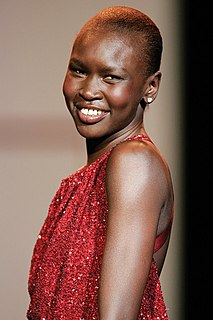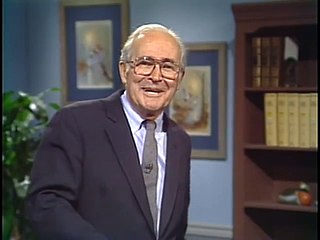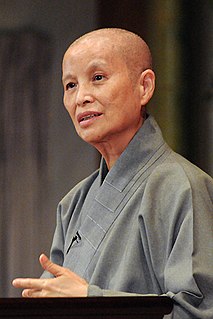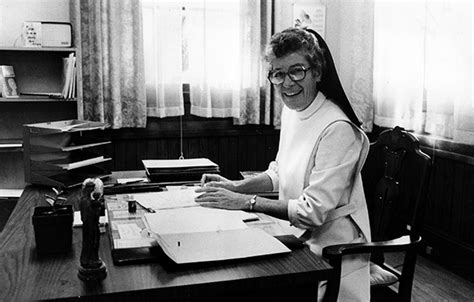Цитата Джоан Д. Читтистер
Я прославляю себя», — писал поэт Уолт Уитмен. Эта мысль настолько восхитительна, что почти непристойна. Представьте себе радость, которую приносит прославление себя — наших достижений, нашего опыта, нашего существования. Представьте, каково это — заглянуть в зеркало и сказать, как научил нас Бог: «Это хорошо.
Связанные цитаты
Нас не учат бояться наших политиков, которые могут обесценить нашу валюту, бросить нас в тюрьму и отправить на войну, — нас учат бояться друг друга. Нас учат воображать, что настоящие хищники в этом мире — это не те, кто контролирует тюремные камеры, госдолги и ядерное оружие, а наши сограждане, которые при отсутствии жестокого контроля обязательно разорвут нас на части!
Подчеркивание того, что практика целенаправленной жизни необходима для полной реализации самооценки, не эквивалентно измерению ценности человека его или ее внешними достижениями. Мы восхищаемся достижениями в себе и в других, и для нас это естественно и уместно. Но это не то же самое, что сказать, что наши достижения являются мерилом или основанием нашей самооценки. Корнем нашей самооценки являются не наши достижения, а те внутренне порожденные практики, которые, среди прочего, позволяют нам достигать.
Память о нашем прошлом, постоянное ношение его с собой, может быть необходимым требованием для поддержания, как говорится, целостности личности. Чтобы «я» не сжималось, чтобы оно сохраняло свой объем, воспоминания нужно поливать, как цветы в горшках, а полив требует регулярного контакта со свидетелями прошлого, то есть с друзьями. . Они наше зеркало; наша память; мы ничего от них не просим, кроме того, чтобы они время от времени полировали зеркало, чтобы мы могли смотреть в него на себя.
Представьте себе форму жизни, чей мозг по сравнению с нашим такой же, как наш по сравнению с шимпанзе. Для такого вида наши самые высокие умственные достижения были бы тривиальными. Их малыши вместо того, чтобы учить азбуку на «Улице Сезам», будут изучать многомерное исчисление на Булевом бульваре. Наши самые сложные теоремы, наши самые глубокие философии, любимые работы наших самых творческих художников станут проектами, которые их школьники принесут домой, чтобы мама и папа повесили их на дверце холодильника.
Идите сначала к своей Высшей Мысли о себе. Представьте себя, каким бы вы были, если бы жили этой мыслью каждый день. Представьте, что бы вы подумали, сделали и сказали, и как бы вы отреагировали на то, что сделали бы и сказали другие. Видите ли вы какую-либо разницу между этой проекцией и тем, что вы думаете, делаете и говорите сейчас?
Поэтому, когда мы называем боль проблемой, мы утверждаем, что не заслуживаем ее. Мы даже готовы уничтожить Бога, чтобы сохранить свою невиновность. Мы скажем, что Бог не может делать то, что Ему угодно, или Он никогда не позволил бы таким людям, как мы, страдать. Это раздувает наше эго и в то же время успокаивает наше горе. «Как Бог мог сделать это со мной?» является одновременно признанием боли и снотворным для нее. Это уменьшает наше личное горе, уничтожая божество. Сильнейшее лекарство, которое могло вообразить только разыгравшееся человеческое эго.
Вызов, который жизнь бросает каждому из нас, состоит в том, чтобы стать по-настоящему самим собой — не тем «я», о котором мы воображали или фантазировали, не тем «я», которым хотят видеть нас наши друзья, не тем «я», которым хочет видеть нас наше эго, а «я» Богом. предопределил нам быть еще до того, как мы были в утробе матери нашей.
Теперь представьте себе мир, в котором все, но особенно люди, обладающие властью и влиянием, имеют расширенное представление о нашем месте в космосе. С этой точки зрения наши проблемы уменьшились бы или вообще никогда бы не возникли, и мы могли бы радоваться нашим земным различиям, избегая при этом поведения наших предшественников, которые убивали друг друга из-за них.
Это то, что мы видим, когда смотрим на Ренье: красоту, ужас, благоговение, невероятные размеры, которые подтверждают наше собственное значение на этой земле. Мы смотрим на гору, как на бога, и не можем представить ничего большего. Его несжимаемая продолжительность жизни напоминает нам о мимолетной смертности наших собственных костей. Он нависает над нашей жизнью в ясные дни и остается присутствующим, но скрытым в зимних облаках. Подобно богу, он остается везде навсегда.
























